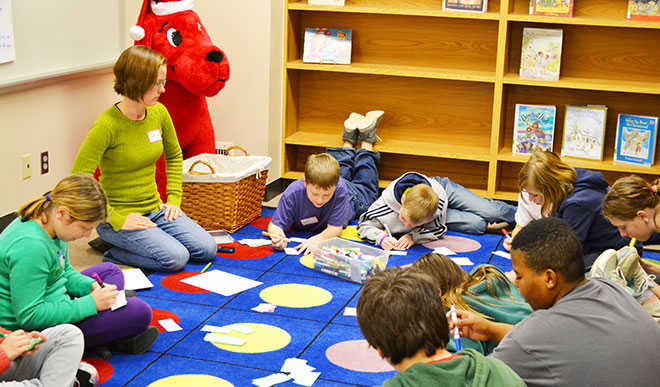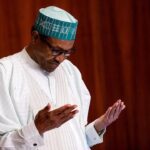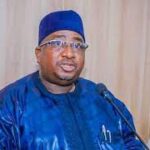
The English language is the world’s most misspelled language. As I wrote in my April 7, 2011 article titled “Top 10 Words Nigerians Commonly Misspell,” there is a “vast disconnect between [English’s] orthography (i.e., its method of representing sounds by written or printed symbols) and its sound system. No one captured this peculiarity more colorfully than George Bernard Shaw, one of England’s most imaginative writers of all time, who once quipped that it is entirely probable that the word ‘ghoti’ could be pronounced ‘fish’ if you followed some of English’s quirky spelling conventions, by which he meant ‘gh’ could be ‘f’ as it is in the word ‘tough,’ ‘o’ could be ‘I’ as it is in the word ‘women,’ and ‘ti’ could be ‘sh’ as it is in the word ‘nation.’”
In the article you will read below initially titled “How Spelling Keeps Kids From Learning,” LUBA VANGELOVA points out that there are pedagogical and socio-economic consequences for the quirky spelling conventions of the English language. The article first appeared in The Atlantic, a US-based magazine, on February 9, 2015, and joins calls for a reform of English spelling. I found the article very informative and thought you would, too. Enjoy.
Johnny in Topeka can’t read, but Janne in Helsinki is effortlessly finishing his storybooks. Such a disparity may be expected by now, but the reason might come as a surprise: It probably has much less to do with teaching style and quality than with language. Simply put, written English is great for puns but terrible for learning to read or write. It’s like making children from around the world complete an obstacle course to fully participate in society but requiring the English-speaking participants to wear blindfolds.
Adults who have already mastered written English tend to forget about its many quirks. But consider this: English has 205 ways to spell 44 sounds. And not only can the same sounds be represented in different ways, but the same letter or letter combinations can also correspond to different sounds. For example, “cat,” “kangaroo,” “chrome,” and “queue” all start with the same sound, and “eight” and “ate” sound identical. Meanwhile, “it” doesn’t sound like the first syllable of “item,” for instance, and “cough” doesn’t rhyme with either “enough,” “through,” “furlough” or “bough.” Even some identically spelled words, such as “tear,” can be pronounced differently and mean different things.
Masha Bell, the vice chair of the English Spelling Society and author of the book Understanding English Spelling, analyzed the 7,000 most common English words and found that 60 percent of them had one or more unpredictably used letters. No one knows for sure, but the Spelling Society speculates that English may just be the world’s most irregularly spelled language.
Mastering such a language takes a long time and requires abilities that most children don’t develop until the middle or latter part of elementary school. Many children struggle to meet unrealistic expectations, get discouraged, and never achieve a high literacy level-all at an enormous cost to themselves and to society. To remedy this situation, would-be reformers have put forth proposed solutions ranging from simplifying the spelling to, most recently, harnessing technology to bypass it altogether.
English spelling wasn’t always so convoluted; there was much more rhyme and reason to Old and even Middle English. But the spoken language has evolved, as all languages are wont to do: Pronunciations have changed and foreign words have been introduced, sometimes retaining the spelling conventions of their original languages.
Written English has also evolved-but mostly in ways unrelated to the changes in the spoken language, thanks in part to shenanigans and human error. The first English printing press, in the 15th century, was operated by Belgians who didn’t know the language and made numerous spelling errors (such as “busy” in place of “bisy”). And because they were paid by the line, they sometimes padded words with extra letters; “frend,” for example, became “friend.” In the next century, other non-English speakers in continental Europe printed the first English Bibles, introducing yet more errors. Worse, those Bibles were then copied, and the writing became increasingly corrupted with each subsequent rendition. English spelling became a chaotic mess, and successful attempts to simplify the spelling after that were offset by events that made the language harder to learn, such as the inclusion of many alternate spellings in Samuel Johnson’s influential English dictionary. Unlike many other languages, English spelling was never reformed to eliminate the incongruities. In a sense, English speakers now talk in one language but write a different one.
As a result, there’s no systematic way to learn to read or write modern English-people have to memorize the spelling of thousands of individual words, file them away in their mental databases, and retrieve them when needed. A small percentage of people excel at this skill, but for most children in English-speaking countries, learning to read and write their native language is a laborious and time-consuming exercise.
By contrast, languages such as Finnish and Korean have very regular spelling systems; rules govern the way words are written, with few exceptions. Finnish also has the added bonus of a nearly one-to-one correspondence between sounds and letters, meaning fewer rules to learn. So after Finnish children learn their alphabet, learning to read is pretty straightforward-they can read well within three months of starting formal learning, Bell says. And it’s not just Finnish- and Korean-speaking children who are at a significant advantage: A 2003 study found that English-speaking children typically needed about three years to master the basics of reading and writing, whereas their counterparts in most European countries needed a year or less.
Moreover, English-speaking children then spend years progressing through different reading levels and mastering the spelling of more and more words. That means it typically takes English-speaking children at least 10 years to become moderately proficient spellers-memorizing about 400 new words per year-and because they forget and have to revise many of the spellings they’ve previously learned, “learning to spell is a never-ending chore,” Bell says.
On the other hand, the American concept of “reading level” doesn’t even exist in countries with more regular spelling systems. In those countries, children become faster readers as they recognize more and more words by sight, Bell says, but they don’t need to have an idea of how a word sounds before they can read. The same goes for writing: In countries like Finland, children “continue to improve their vocabulary and use of language, but because they spell by rules rather than imprinting the right look of words on their brains, they can spell any word, regardless of whether they have met it before or not,” she says. The speakers of slightly more irregular languages such as Spanish, for instance, still need a small fraction of the time to memorize the exceptions in those languages compared to English.

 Join Daily Trust WhatsApp Community For Quick Access To News and Happenings Around You.
Join Daily Trust WhatsApp Community For Quick Access To News and Happenings Around You.


